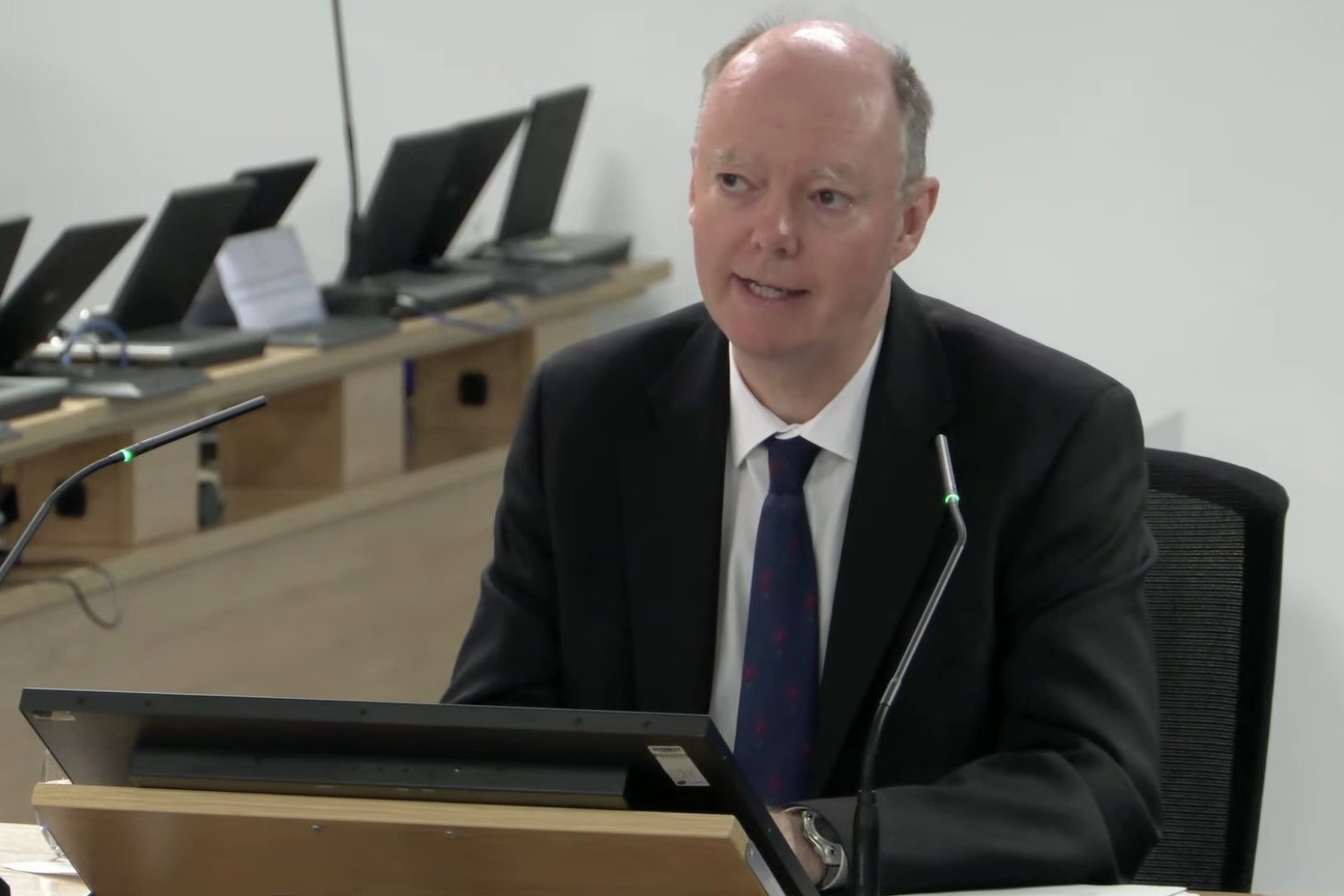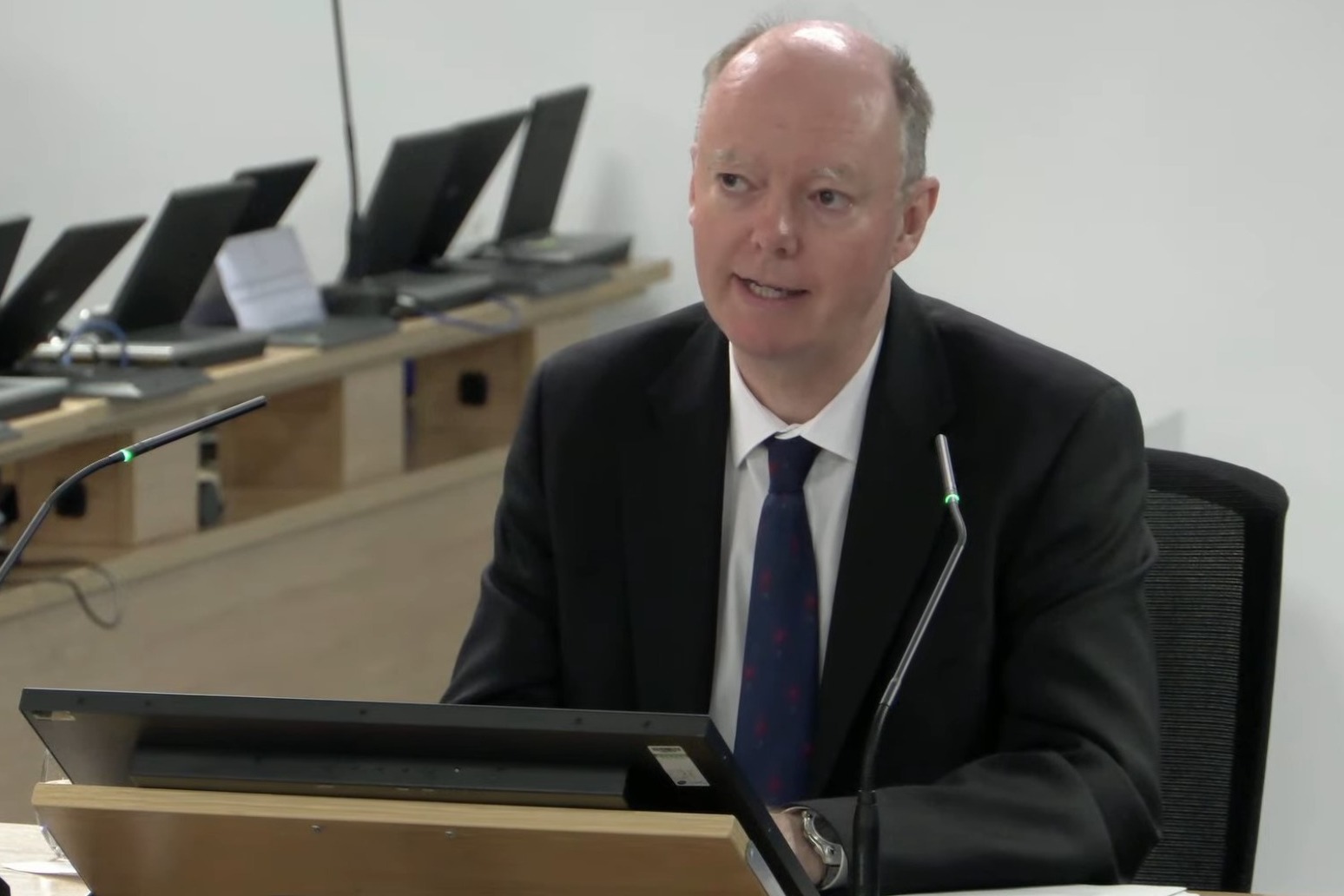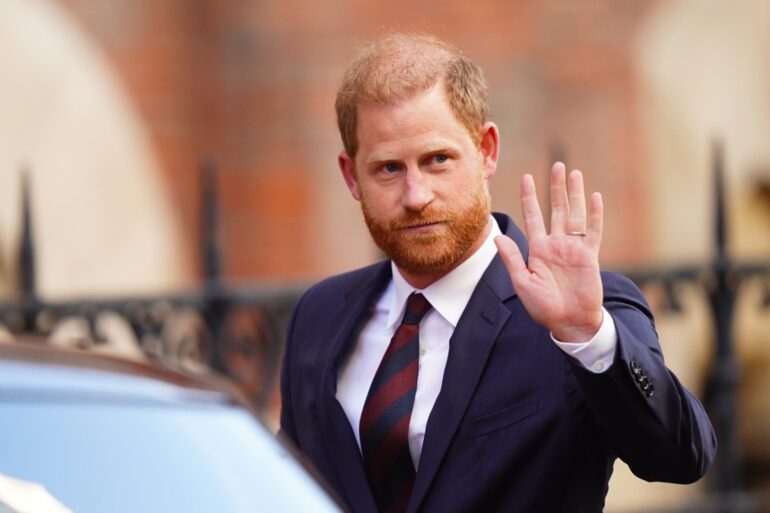Listeners:
Top listeners:
-
 play_arrow
play_arrow
WBPL – LIVE As Blackpool As You Are
 Adele - Easy On Me
Wow I love this song! Thank you for your amazing music!
Aria R.
Adele - Easy On Me
Wow I love this song! Thank you for your amazing music!
Aria R.
 Deep Purple - Smoke On the Water
Shoutout to the rainbow in my life, Gina!
Orion S.
Deep Purple - Smoke On the Water
Shoutout to the rainbow in my life, Gina!
Orion S.
 Luna Park - Space Melody (Radio Version)
Calling my cosmic companion, Jane! Hit play and let's embark on a musical space journey.
Luna Park - Space Melody (Radio Version)
Calling my cosmic companion, Jane! Hit play and let's embark on a musical space journey.
Whitty UK faced absolutely catastrophic situation before first Covid lockdown


The UK faced an “absolutely catastrophic situation” as it headed towards the first Covid lockdown, England’s chief medical officer has said, as he defended the fact not all patients with other illnesses could get NHS care.
Professor Sir Chris Whitty told the Covid inquiry in central London there were concerns things could get “substantially worse”, even at the point when the NHS was not functioning as well as it should. He also told how the pandemic was “incredibly harrowing” for NHS staff, “particularly in the first wave before vaccines became available”. The leading medic was asked by Jacqueline Carey KC, counsel to the inquiry, about one of the reasons for the first lockdown in March 2020, which was to prevent the NHS from being overwhelmed. She said: “Can I ask you this, was overwhelmed ever defined by those that were making that decision?” Sir Chris replied: “Not really, and I think that it’s become, unfortunately, quite a loaded term where people, depending on what point they’re trying to make, either say things were or were not overwhelmed. “I think the aim of it, though, was to minimise the number of people who died, both directly and indirectly from Covid.” Describing the health harms from the pandemic, Sir Chris said there were direct harms from Covid – the number of people who died from the virus – and the indirect harms “that come from the system being overwhelmed or at least unable to cope … all diseases, not just Covid, having higher mortality rates than they would have had.” He said people often forget that, at the time, Covid cases were exponentially rising, with a doubling rate of three to four days. “At the point we are talking, about four doubling times more would have led us to an absolutely catastrophic situation,” he said. “I’m not saying that where we were was anywhere short of incredibly difficult and, in many places, individual elements of hospitals, individual hospitals, individual bits (of) the system, were coping nowhere near where they would have been if Covid wasn’t there. “That’s self evidently true, but if we had not had the lockdown, the expectation is that would have got a lot worse. “I don’t mean just trivial worse, but really quite substantially worse.” Asked if the NHS was able to function, he said the “NHS continued to treat sick patients throughout, it continued to treat people who did not have Covid throughout. “In fact, most, I think, at all times, actually, there were more people in hospital who did not have Covid than had Covid. “I think certainly for the great majority, I’m sure there were cases where that was not true, it wasn’t true in many ICUs. “But, more generally, there was still a functioning health service. It was clearly functioning at well below the capacity than it would have normally.” Sir Chris said the pandemic was “the largest medical emergency” since the Second World War in a high income country and this made the “system really not work anywhere near as effectively as it would if Covid had not been there. “But that’s self evidently true. If that were not the case, it would be extraordinary.” The inquiry heard about research commissioned by the inquiry among 1,683 NHS health workers, where more than half said some patients could not be escalated to the next level of care due to lack of resources during the first two waves of the pandemic. Asked about those people who could not get NHS care they would otherwise have got, Sir Chris said: “I didn’t see any surprise in (the data in the research). “I would caveat this by saying, if (people) in the middle of a winter in the NHS pre-Covid had been asked these questions, you would not have got a 100% everyone can be escalated to the next level. “And I think it is unrealistic, even in those circumstances, to think this would have been the case. “Pretty unsurprisingly for the biggest pandemic in 100 years for this country – the system was unable to escalate things in the way it normally would. “That doesn’t seem to me a surprising statement.” Turning to the “certainty” that a pandemic will occur again in the future, Sir Chris said you could increase NHS capacity “and, taking ICU in particular, the UK has a very low ICU capacity compared to most of our peer nations in high income countries. Now that’s a choice, that’s a political choice”. He said this meant you have “less reserve when a major emergency happens”, adding that trained staff was an issue as you cannot train ICU staff in six weeks. The other thing that can be done is to minimise the scale of the pandemic, such as through lockdowns and non-pharmaceutical interventions. He added: “But the way out of these is always going to be science in the end, as it was for this one, with vaccines.” Sir Chris, who worked on wards during the pandemic, said he agreed with the evidence presented to the inquiry by Professor Kevin Fong, former national clinical adviser in emergency preparedness, resilience and response at NHS England. Prof Wong told the inquiry on Thursday morning harrowing details, including nurses wearing nappies because they could not take toilet breaks, staff buying visors at Screw Fix for protection, and hospitals piling up patients and running out of body bags. “I think much of the trauma that was very powerfully laid out by Professor Fong in the last evidence – with which I fully concur, to be clear – was very apparent in many of the colleagues I had,” Sir Chris said. He added that the scale of the second wave of the virus was “underappreciated” by the public. The second wave started in the autumn of 2020, lasting until the spring of 2021. “I think people who had relatives, obviously, people who were sick, fully understood that this was, in fact, a larger wave in terms of total numbers of people who were severely ill and, indeed, who sadly died,” he said.
Published: by Radio NewsHub
Written by: admin
-
Recent Posts
- Kate Forbes Says Independence For Scotland Is An Economic Necessity
- Prince Harry Returning To The UK For Charity Visits With Donation To Children In Need
- Harry Returning To The UK For Charity Visits With Donation To Children In Need
- Insecure Work Holding Back Economy
- Joel Dommett Hails Huge Shows In Running For National Television Awards
Chart
-

1
Jonas Blue, Liam Payne And Lennon Stella
Polaroid
-

2
Tanja Thomas
One Way Ticket (To The Blues)
-
3
The Monkees, 01.01
I'm A Believer
-
Top popular

Difficult day as last blast furnace shuts down at Port Talbot steelworks

UK Government charters flight for Britons in Lebanon

Downton Abbey creator Julian Fellowes Dame Maggie Smith was blessing in my life

Household energy bills to rise for winter as Ofgem lifts price cap

Ringleader of plot to smuggle 76m of cocaine into UK hidden in bananas jailed

WHO WE ARE
We are bringing the fun back to the seaside city, and we live and love EVERYTHING Blackpool!
CONTACT
- info@wbplradio.com
Copyright The Mediasite UK - 2024.



